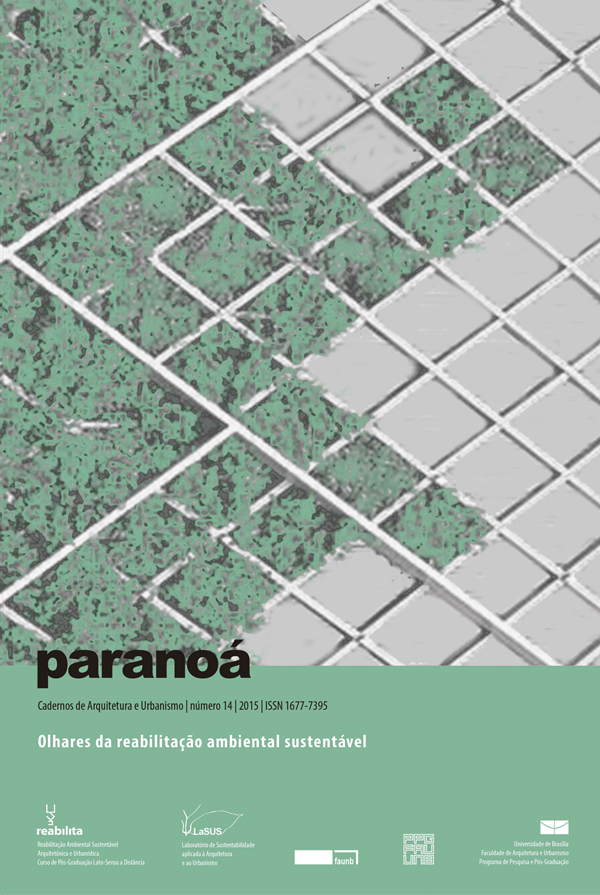Desafios do planejamento urbano no Brasil e seus marcos legais sob a ótica da agricultura urbana
DOI:
https://doi.org/10.18830/issn.1679-0944.n14.2015.16988Keywords:
Urban agriculture, Urban planning, Urban sustainability, Territorial sections and land use sectionsAbstract
Faced with an uncertain future of climate change, a collapse is predicted in major cities around the world. The scenario is a product of food insecurity generated by the distance of local agriculture from areas adjacent to urban space, a context already identified in some civilizations in the past. From this perspective, it is assumed that urban planning actions must be integrated into food production strategies to include initiatives in favor of urban and peri-urban agriculture and permaculture practices. Considering such premises, the objective of the research is to demonstrate the challenges of urban planning in Brazil when analyzed from the perspective of urban agriculture. It is understood the need to assume new concepts and models of space composition, associated with permaculture and its experimental practice, considering the integration of urban contexts (intra-urban, peri-urban and rural areas) that currently do not present clear interrelationships. To bring the study closer to the Brazilian reality, the social policies of the Ministry of Social Development and the legal frameworks of urban policies were analyzed, including the City Statute (Law 10,257/2001) and Law 6,766/1979. The results indicate that there is a gap regarding the actions and practices of urban agriculture in the legal scope of land use and occupation and, therefore, some application guidelines are suggested.
Downloads
References
DRESH, Daniel; RODRIGUES, Joe (colab.). Reabilitação Ambiental Sustentável Arquitetônica e Urbanística. Brasília: FAU/UnB, 2009.
BIAZZO, P. P. Campo e Rural, Cidade e Urbano. In 4º ENCONTRO NACIONAL DE GRUPOS DE PESQUISA ”“ ENGRUP. São Paulo, 2008.
BRASIL. Ministério do Desenvolvimento Social e Combate à Fome. Panorama da agricultura urban e periurbana no Brasil e diretrizes políticas para sua promoção. Belo Horizonte, 2007.
EMBRAPA. Documentos 48: Agricultura Urbana. Planaltina, 2002.
LEMOS, N. S. Marcos legais e agricultura urbana no contexto da cidade sustentável. Monografia (Especialização) ”“ FAU/UnB, Brasília, 2012.
LEMOS, N. S. ANDRADE, L. M. S.; MEDEIROS, V. A. S. Urban planning through the prism of urban agriculture In: INTERNATIONAL CONFERENCE ON CHANGING CITIES: SPATIAL, MORPHOLOGICAL, FORMAL & SOCIO-ECONOMIC DIMENSIONS.
MOLLISON, Bill; SLAY, R. M. Introdução à Permacultura. Tradução: André Luis Jaeger Soares. Brasília: MA/ SDR/ PNFC, 1998.
MOUGEOT, Luc J. A. Urban agriculture: definition, presence, potentials and risks. In: BAKKER, N.; DUBBELING, M.; GÜNDEL, S.; SABELKOSCHELLA, U.; ZEEUW, H. (Ed.). Growing cities, growing food. Feldafing: Deutsche Sitffung für Internationale Entwicklung, 2000.
MOUGEOT, Luc J. A. Agropolis ”“ The Social, Political and Environmental Dimensions of Urban Agriculture. Earthscan and the International Development Research Centre (IDRC). UK, USA e Canadá: 2005.
MOORE, P. D. Agricultural and Urban Areas. Chelsea House. Nova Iorque: 2006.
RODRIGUES, M. A. P. Potencialidades da permacultura na arquitetura da paisagem no Cerrado. Dissertação (Mestrado) ”“ FAU/UnB, Brasília, 2000.
Downloads
Published
How to Cite
Issue
Section
License
Copyright (c) 2022 Paranoá: journal of Architecture and Urbanism

This work is licensed under a Creative Commons Attribution 4.0 International License.
Autores que publicam nesta revista concordam com os seguintes termos:
- Autores mantém os direitos autorais e concedem à revista o direito de primeira publicação, com o trabalho simultaneamente licenciado sob a Licença Creative Commons Attribution que permite o compartilhamento do trabalho com reconhecimento da autoria e publicação inicial nesta revista. http://creativecommons.org/licenses/by/4.0
- Autores têm autorização para assumir contratos adicionais separadamente, para distribuição não-exclusiva da versão do trabalho publicada nesta revista (ex.: publicar em repositório institucional ou como capítulo de livro), com reconhecimento de autoria e publicação inicial nesta revista.
- Autores têm permissão e são estimulados a publicar e distribuir seu trabalho online (ex.: em repositórios institucionais ou na sua página pessoal) a qualquer ponto antes ou durante o processo editorial, já que isso pode gerar alterações produtivas, bem como aumentar o impacto e a citação do trabalho publicado (Veja O Efeito do Acesso Livre).















